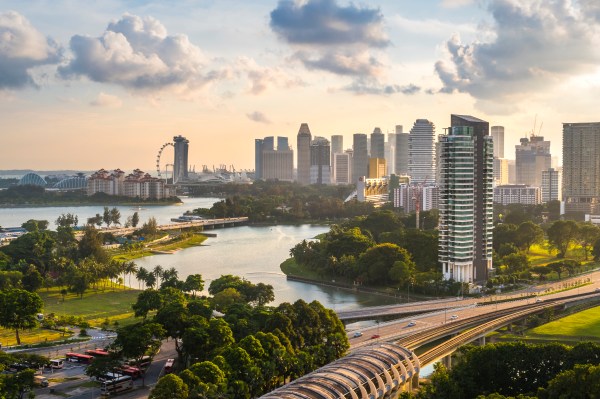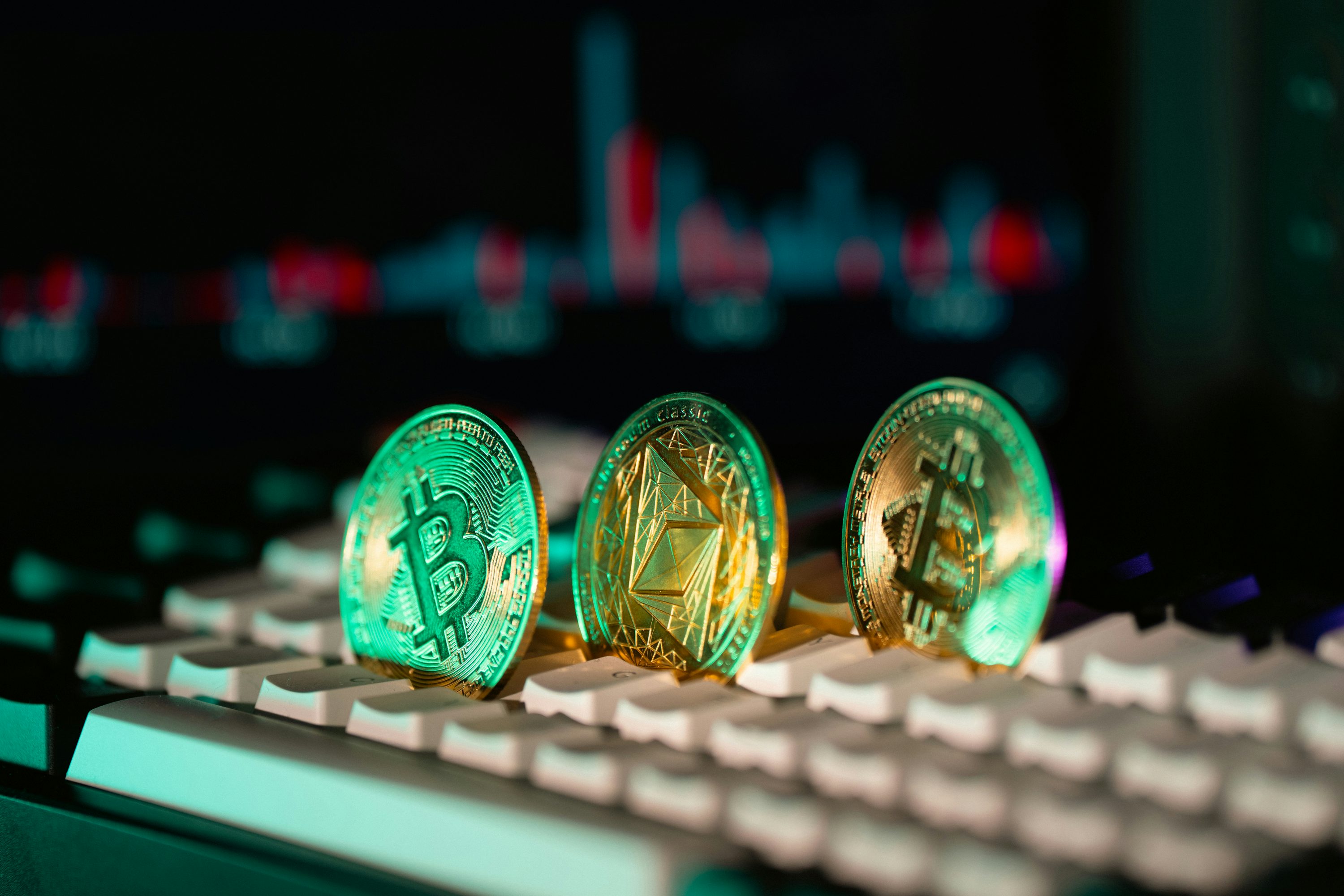What is Reddit CEO Steve Huffman doing?
Who’s running this thing, anyway? | Photo illustration by William Joel / The Verge | Photo by Greg Doherty / Variety via Getty ImagesCan’t wait for the S-1! Continue reading…
/cdn.vox-cdn.com/uploads/chorus_asset/file/24730994/236702_Steve_Huffman_Interview_WJoel.jpg)
One of the weirder phenomena of the low interest rate era in tech was a tendency to see companies primarily as investments. The goal was not to have a functional business, but an exit, often via IPO or acquisition. I have begun to wonder if that explains what Reddit CEO Steve Huffman has been up to lately.
Before the Sturm und Drang of the Reddit protests, Huffman had been feeling some heat. Fidelity, an investor that led Reddit’s 2021 funding round valuing the company at $10 billion, sliced Reddit’s valuation by 41 percent; its stake, which it spent $28.2 million to acquire, was now only worth $16.6 million.
Now, some of this is a general markdown of the tech industry, which has been frothy for the better part of the last decade. But the write-down raised questions about Reddit’s ability to go public at a desirable valuation, letting its investors exit. At the end of 2021, just coming off the meme stock bonanza, Reddit aimed at going public with a $15 billion valuation. In hindsight, that filing was late, and Reddit missed its window: the hot IPO market of 2021 cooled off as the Fed began hiking interest rates.
Underlying much of Huffman’s early communications as CEO was the basic idea that Reddit was a bastion of user-led community
I don’t know Huffman personally, or who he’s hanging out with, but I do have a sense of his investors. Besides Fidelity, they include Sequoia, Tencent, Coatue, Y Combinator, and Andreessen Horowitz. There’s pressure on venture capital right now, too, and VCs tend to pass the pressure along.
Huffman is a Reddit co-founder who came back to the company after the users revolted against interim CEO Ellen Pao in 2015. She left after an enormous community backlash to Reddit (1) banning some subreddits such as r/fatpeoplehate and (2) firing Victoria Taylor, a key liaison between Reddit’s moderators and the company itself. During the ensuing protests, moderators shut down their subreddits — a preview of the fury Huffman would later receive. An online petition for her resignation got more than 200,000 signatures. Pao said the board asked her to resign.
In the Reddit post by co-founder Alexis Ohanian that announced Huffman’s return as CEO, Ohanian admitted he was responsible for Taylor’s firing; evidently, he’d thought it was fine to simply let Pao take the brunt of the site’s fury. Pao’s later comments about a subordinate who refused to report to her only emphasize how little support she got.
In the aftermath of the 2015 Reddit revolt, there was a lot of language about “authentic discussions” and Reddit as “the front page of the internet.” Underlying much of Huffman’s early communications as CEO was the basic idea that Reddit was a bastion of user-led community.
There are some other reasons to believe Huffman doesn’t understand the strength of community
The idea of community-led moderation is powerful: users are more likely to know than subcontractors the context behind a post in any specific forum — and may make better judgments. This model for community moderation is being tried out now on Mastodon and Bluesky and may even come to Threads.
From any company’s perspective, it’s cheaper than subcontractors and shifts responsibility for moderation screwups onto users, making for fewer uncomfortable moments for the C-suite. But both the 2015 Reddit revolt and the more recent protests make clear, however, the limits of community moderation. In 2015, it became obvious that moderators who are part of a harassment campaign won’t stop it. The more recent protests around API changes also suggest there are limits to what unpaid people will do to fall in line with the company’s objectives.
Here’s what Huffman wrote then:
One thing that isn’t up for debate is why Reddit exists. Reddit is a place to have open and authentic discussions. The reason we’re careful to restrict speech is because people have more open and authentic discussions when they aren’t worried about the speech police knocking down their door. When our purpose comes into conflict with a policy, we make sure our purpose wins.
I am lingering on the 2015 revolt because, at the time, Reddit presented itself as being a company dedicated to community building. Reddit’s response to the most recent round of protests is very different. Two things stand out: first, of course, the possible IPO. The second thing is the CEO, Steve Huffman.
About a year into his tenure as Reddit CEO, it came out that Huffman was rogue-editing comments that were critical of him. When he was caught, he suggested that Pao “probably lacked the expertise to do it.”
In a New Yorker article about ultra-wealthy doomsday preppers, Huffman’s the opening anecdote: having gotten laser eye surgery, he is prepared for “‘the temporary collapse of our government and structures,’ as he puts it. ‘I own a couple of motorcycles. I have a bunch of guns and ammo. Food. I figure that, with that, I can hole up in my house for some amount of time.’” This individualist ethos isn’t uncommon in Silicon Valley, but it’s also not actually how people survive disasters. Cooperation is key, as is community.
With the more recent protests, Reddit took a hard line on the API protests and began to crack down on moderators. The company threatened moderators who wouldn’t reopen their subreddits. Reddit eventually told moderators it would remove those who kept their communities private in protest; the company would simply reopen subreddits by force.
By underscoring the power that moderators have at Reddit, Huffman has managed to emphasize one of the company’s risk factors
Huffman chose to compare the moderators who objected to his API decision-making as the “landed gentry”; in this metaphor, I suppose, he is the king. Historically, peasant revolts are mostly unsuccessful. Landed gentry, on the other hand, have better odds. By underscoring the power that moderators have at Reddit, Huffman has managed to emphasize one of the company’s risk factors, something that will doubtless be on the mind of anyone thinking about investing in the IPO.
As for the API stuff itself, I view that primarily as a way of juicing the bottom line for the IPO. Take this comment from Huffman:
We’ll continue to be profit-driven until profits arrive. Unlike some of the [third-party] apps, we are not profitable.
This is quite a comment! The thing about Reddit’s behavior lately is that it’s hard to tell whether Reddit is actually in serious financial trouble and thus cruising for a cash infusion from an IPO or whether Huffman is just hoping to make as big a splash with his IPO as possible by juicing his numbers.
Some of the communities that closed down in response to the API changes explicitly shifted to Discord
Leave aside that Huffman missed the IPO window in 2021, at a time when it seemed like every special purpose acquisition company, or SPAC, on earth managed to do a deal. The thing that sparked the most recent set of Reddit protests was shutting down third-party apps by charging, reportedly, about $12,000 per 50 million requests, according to developer Christian Selig. In some ways, this makes sense: third-party apps let users skip ads, which hits Reddit’s bottom line. The pricing, however, seems steep. Why?
Well, the answer is AI. Basically, former Reddit board member Sam Altman, who departed in 2022, admitted his company, OpenAI, had trained on Reddit data. I find it difficult to believe that Huffman didn’t know OpenAI was training using Reddit’s data, particularly since Altman sat on Huffman’s board. Suddenly, Huffman is saying the API is very valuable, especially to buzzy AI companies that investors have lately had the hots for. This seems to position Reddit as being in the shovels business during the AI gold rush.
And then there are the layoffs — Reddit said it would cut 5 percent of its workforce in June and hire fewer people. This is also the kind of thing investors like to hear, even if it’s not always good for the underlying business.
Both the API changes and the layoffs seem odd to me because they harm Reddit’s ability to build and tend to its community at a time when it’s facing a serious competitor: Discord. Discord — like other private group chat communities — seems to be rising in importance as users turn away from broadcasting their thoughts across social media.
Huffman seems confused about his competitors and about the risk factors of community moderation
In fact, some of the communities that closed down in response to the API changes explicitly shifted to Discord. During the protests, those Discord groups were ways for the communities to stay in touch without Reddit — and while Reddit can and will police its subreddits, it has no power over a user shift to a different platform.
Huffman seems confused about his competitors and about the risk factors of community moderation. His justification for the API price increase, among other things, is “Elon Musk did it.” How is Twitter doing? Well, it’s stiffing Google, its employees, its employees again, and its landlord. This is to say nothing of the drop in advertising revenue and heavy debt load.
Then there’s the removal of chat history, which could very well be another cost-cutting measure. After all, storing all those old chats requires server space, which requires money.
Maybe Huffman is right, and the outrage from the API changes “will pass.” Certainly that happened after the Reddit revolts of 2015. But some of Reddit’s other moves make me wonder if there’s blood in the water. And Reddit’s very different response to user outrage this time around suggests there may be long-term anger.
Reddit just reopened r/Place, a kind of collaborative art project, which may be a way of gauging the mood. Huffman’s handle on Reddit is “spez,” and you can count for yourself the number of times Redditors have written “fuck spez” on r/Place. I look forward to Reddit’s S-1.

 BigThink
BigThink 
































